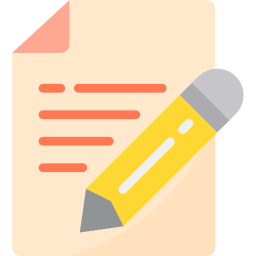Intermediate listening about The Best Way To Study
آموزش مهارت شنیداری متوسط به زبان انگلیسی با موضوع روش مناسب برای درس خواندن

English listening about an effective method of studying

Right, so, what's the best way to study? Well, first of all, it's a good idea to have some kind of plan or timetable. This could be for the week or a longer revision timetable for an exam, from one month to six months. Yes, if you're studying for an important exam it's important to think long term. Draw up a timetable, but revise it often. If it's not going to plan, you may have to rethink it.
Next, think about your environment. Make sure the place where you are going to study is comfortable with enough light, air, etc. Not too hot, not too cold. Make sure there are no distracting noises around, such as television. If you think you concentrate better listening to music, experiment and see if it's really true. Some people really do seem to work better with music in the background, especially classical music, but for many people it spoils their concentration. However, if you have to work near a TV, you might have to use headphones to play music to drown out the sound of the TV. In this case, find out what kind of music works best for you, maybe something without words. By the way, you might think you work fine with the TV on, but, again, experiment. You might be surprised at how much better you work away from a TV. Oh, and the other thing is the internet, text messages, Twitter, Facebook, etc. Forget about all of that while you're studying. No, really, you can ignore it for an hour or so; it won't be the end of the world if you don't reply to a message immediately.
Right, planning breaks. Plan your study periods in chunks with regular breaks. Many people recommend half an hour of concentrated study, then a ten-minute break. But you can adjust this to suit you. If you study for too long at a stretch your mind will work less effectively, so be careful. In your short break, you can give yourself a treat, such as a cup of green tea. I wouldn't advise a chocolate bar as a treat - a sugar rush is not great for concentration.
OK, so next let's think about what you do when you're studying. Some people just read through their notes or textbooks and underline in pencil or highlight important bits. If this works for you, fine, but I'd suggest that it's better to write notes of some kind, so your mind is processing the information more. This way you are also producing material which will be useful for last-minute revision. I don't recommend very last-minute revision, by the way, but we'll come back to that later.
Have a look at these examples of student notes. Which do you think are best? The first person has written important phrases at random, the next has a table with clear headings and boxes with notes, the next has summaries, and the last one has mind maps: you've got the main topic in the circle, then lines coming off the circle attached to subcategories, then more lines to further details. Mind maps are great for showing the connections between different bits of information. They seem to work in the same way the brain works. So what do you think? To me, the first one wouldn't be very useful to come back to and use in the future. But the others are all fine - it depends on your personal preference. Mine is for mind maps. I would suggest using colours, though, and even little drawings. They can make things much more memorable.
Obviously, when you are studying, the first thing to think about is whether you understand the information, and the second thing is how you are going to remember it. Let's look at some more ways of making information more memorable ナ
برای دسترسی به دروس بیشتر به لینک زیر مراجعه کنید.
لغات زبان انگلیسی به تفکیک موضوع
درک مطلب از سطح مبتدی تا پیشرفته
تمامی موضوعات آیلتس اسپیکینگ پارت یک، دو و سه همراه با جواب
The students will be taking exams soon.
A revision timetable could be from one to six weeks.
No one can really concentrate properly with music on.
You should try to forget about the internet, text messages, Twitter, Facebook, etc. while you're studying.
You should try not to have a break until you really need one.
Underlining or highlighting your notes is better than writing more notes.
Mind maps are good because they mirror the way the brain works.
The most important thing is to remember the information. You don't have to understand it.


